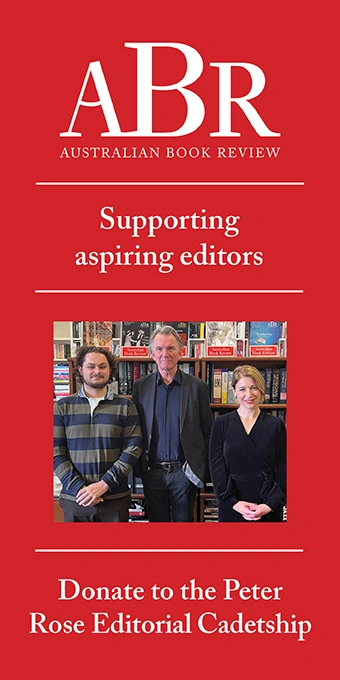Jordan Prosser

Jordan Prosser is a writer, filmmaker, and performer from Naarm/Melbourne, and a graduate of the VCA School of Film & Television. In 2022, he won the Peter Carey Short Story Award. His debut novel, Big Time, was published in 2024.
Shortly before The Seed of the Sacred Fig premièred in competition at the 2024 Cannes Film Festival, where it won the Special Jury Prize, and well before it became Germany’s entry for Best International Feature at this year’s Academy Awards, Iranian writer-director Mohammad Rasoulof was sentenced to eight years in prison, plus a flogging and a hefty fine, for ‘collusion with the intention o ... (read more)
In the weeks since David Lynch’s death, much of the conversation around his legacy has focused on the dream-like quality of his work, a quality ephemeral enough that long ago it necessitated the coining of its own eponymous adjective: ‘Lynchian’. But without the ease of such brand-name recognition, how might we define what makes a film ‘dream-like’? Is it the absence of hard logic and tr ... (read more)
Right now on the website for A24 – the reigning enfant terrible of indie American film distribution – you can buy a ‘Babygirl Milk Tee’ for $40, a T-shirt prominently featuring an image of a tall glass of milk. This is an allusion to one of the more memorable moments in Halina Reijn’s Babygirl, when upstart intern Samuel (Harris Dickinson) surreptitiously purchases a glass of milk for hi ... (read more)
You can’t tell the story of American cinema without Al Pacino, but it has taken him eighty-four years to get around to telling his own. Plenty of celebrities have put pen to paper in an effort to enshrine their life story well before becoming an octogenarian, but Sonny Boy, Pacino’s delightfully ramshackle and deeply heartfelt memoir, instantly benefits from feeling like a full, close-to-finis ... (read more)
My favourite Ralph Fiennes performance is in Fernando Meirelles’s The Constant Gardener (2005). Fiennes plays a British diplomat stationed in Africa, forced to unravel the conspiracy that led to his wife’s murder. Investigating her death, he comes to know her better than he did when she was alive; it is a backwards love story about honouring legacies we might not fully comprehend. Fiennes’s ... (read more)
Where David Cronenberg’s body horrors of the 1980s and 1990s, such as Videodrome, The Fly, and Crash, were fascinating because of the fusion of technology and the human form, a new wave of genre films is anxiously asking: how much can we tweak and tinker before our bodies start to bite back? Like Theseus’s ship, how much can we swap out before nothing of our true self remains? Cosmetic surgery ... (read more)
In the opening shot of Francis Ford Coppola’s The Conversation – one of the great opening shots in cinema – a slow, telescopic zoom scans the lunchtime crowd on a sunny day in San Francisco’s Union Square. As if by accident, the camera settles on Harry Caul (Gene Hackman), a middle-aged man in a grey raincoat whom we may not have even noticed if it weren’t for a busking mime sidling over ... (read more)
Public scandals are like modern-day myths that change shape and lose fidelity the more often they are repeated. They become copies of copies, grainier yet somehow grander, wholly untethered from their time and place of origin. They are also the lifeblood of much of our current entertainment landscape, in an age when lived experience counts as valuable IP, and the truth is merely content waiting to ... (read more)
Sofia Coppola’s films are suffused with the bittersweet inevitability of adolescence: a period of life that changes you irrevocably and comes with an in-built ending. Anyone who has studied History at high school knows the outcome of Marie Antoinette (2006). In The Virgin Suicides (1999), it’s right there in the title. This sense of languid doom has never been more apparent than in Coppola’s ... (read more)



